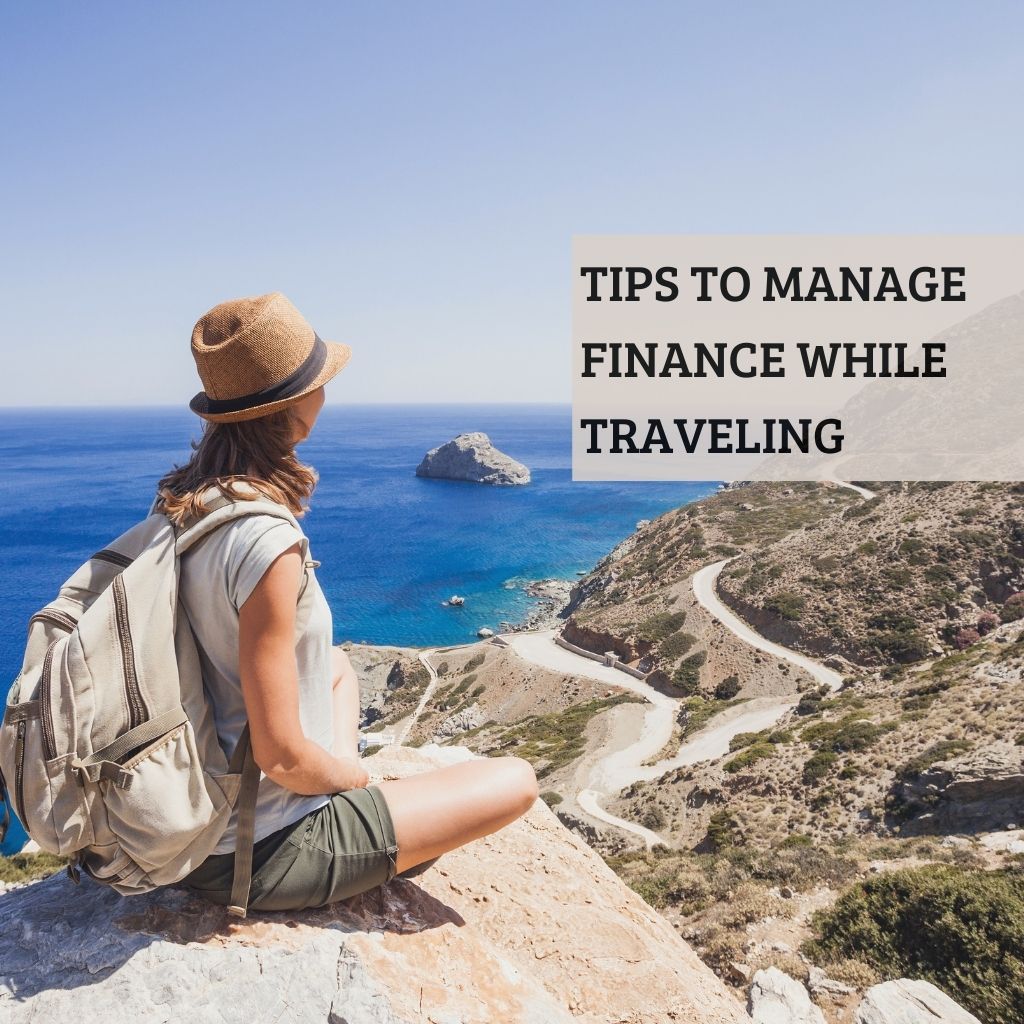Are you about to take a trip and worried about how you will manage your personal finance? Do not worry, there are ways that you can make it work. You just need to be prepared and have a plan in place. I have been globetrotting for two decades and I have learned this hard way, but you don’t have to. In this article, I will share with you some tips on how I manage my finances efficiently when I travel.
It is not rocket science. As far as I can do it, you should too.
So read on and get ready to take your vacation without breaking the bank!

1. Set a budget and stick to it
When it comes to managing your personal finances while traveling, this is the most important step. You need to set a budget for your trip and make sure that you stick to it. Therefore, you should know how much you have to spend on your trip and how much you can afford.
You can start by looking at your expenses by category, such as accommodations, food, transportation, and activities. Once you know how much each category will cost, you can set a budget for it. Prioritize where you want to spend more and where you want to compromise. For example, I never compromise on certain activities as you are unlikely to visit the same destination again shortly. While visiting Perth, Australia, I paid a whopping $600 for “Swim with Wild Dolphins“, an experience I would not be able to get everywhere. Make sure to also leave some room in your budget for unexpected costs such as souvenirs or emergencies.
Lastly, don’t be penny-wise and pound-foolish!
2. Make a list of the essentials you need to bring
A seasoned traveler will tell you that there are a few essential items you should bring when traveling. So, start budgeting for them. Invest in items that can be re-used during each trip and that will last a long time. The first item on any good traveler’s list is a quality backpack. Besides being big enough to hold all your essentials, it should also be comfortable to wear for long periods. Another essential is a good pair of walking shoes. Sightseeing involves a lot of walking, so you should wear comfortable shoes that won’t give you blisters. Lastly, you should also bring an international travel adapter so your devices can be charged regardless of the outlet. Avoid overspending on unnecessary items and stay within your budget.
Here are a few essential items I always bring on my trips, whether or not they are required. It has saved me tons of money.
- Extra pairs of prescription glasses and shades – they cost you a bomb in foreign countries if you lose the regular pair.
- Medical kit with an adequate supply of preventive, routine, and anti-biotic medicines – I have an arrangement with the pharmacy to return unused medicines immediately after the trip.
- An extra Smartphone – you don’t want to be stranded in case your phone stops working for any reason. Invest in a budget phone so it’s not heavy on your pocket.
- Extra memory cards – your pictures will be a lifelong memory, so you don’t want to lose them if something goes wrong. Usually, I take a cloud backup of all my photos each evening, but if I cannot get online, the extra memory card serves as a backup.
- Non-perishable food and snacks – you don’t want your travel plans to be disrupted in search of a restaurant in remote places. I always keep sufficient stock of chocolates with me as they fill my appetite quickly.
3. Automate your bill and recurring payments
No one likes to think about bills when they’re on vacation. But if you’re not careful, you can come home to a stack of unpaid bills, late fees and disconnected services. One way to avoid this problem is to automate your bill payments. Most banks and credit cards allow you to set up standing instructions for recurring payments. That way, your bills will be paid on time even if you’re away from home. And if you’re worried about losing Internet service while you’re traveling, many banks now offer mobile apps that allow you to view your account balance and make payments using your phone. So there’s no need to waste time searching for an Internet café when you could be exploring your new surroundings. By taking a few simple steps before you leave, you can enjoy your trip without worrying about what’s waiting for you back home.
4. Be aware of your spending habits
Just because you’re on vacation doesn’t mean you should let your spending habits go out the window. If you’re not careful, you could end up blowing your budget and coming home to a credit card bill you can’t afford to pay. Before you travel, take some time to think about your spending habits and how they might change while you’re on vacation. If you’re used to eating out every night, for example, you might want to consider cooking some meals in your apartment. And if you’re used to buying souvenirs for all your friends and family, you might want to limit yourself to a few small items that won’t break the bank.
5. Get a debit or credit card for travel if you are an impulsive spender
For those who find it difficult to stick to a budget, using a separate debit or credit card for travel expenses can be a helpful way to control spending. By setting a daily limit on your card, you can ensure that you don’t overspend and go beyond your means. This can help to instill a sense of discipline when it comes to spending and reinforce the fact that your funds are not infinite. It can also help you earn reward points that you can use to access complimentary airport lounges. If you still find it difficult to control your spending with a debit or credit card, then switch back to cash as a last resort. Despite the inconvenience, it can help you to stick to your budget and avoid going into debt, which often happens to travelers.
Conclusion
Managing your personal finances while traveling can be a challenge, but it’s not impossible. By following these tips, you can enjoy your trip without worrying about the financial consequences. Automating your payments, being aware of your spending habits and getting a debit or credit card for travel expenses are all helpful ways to stay on budget while you’re away from home. So put these tips into practice and enjoy your next vacation without breaking the bank.





Add a Comment